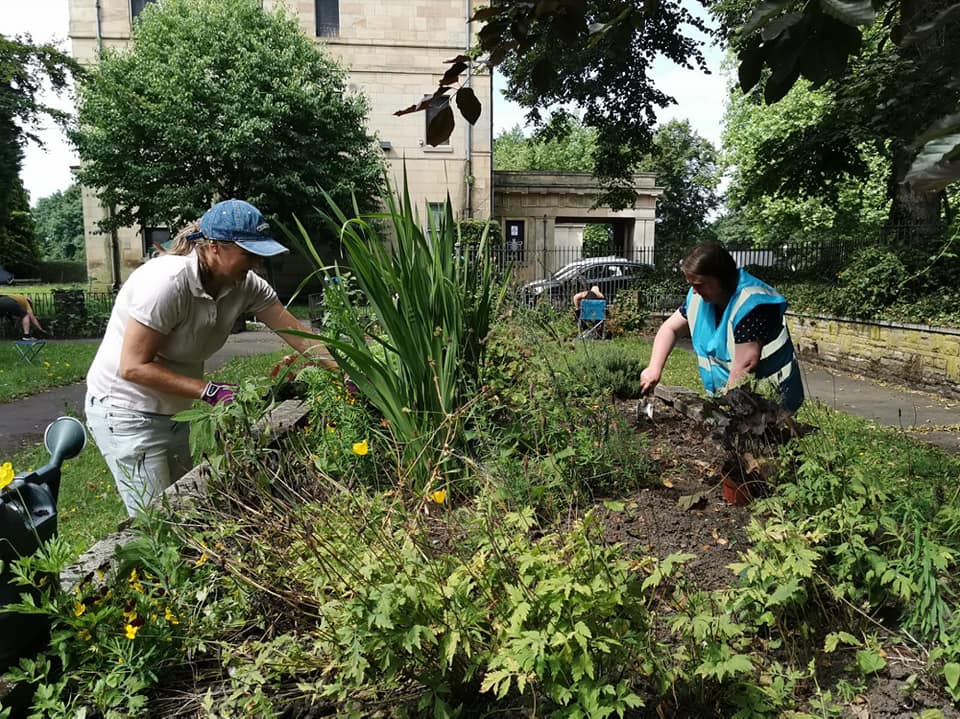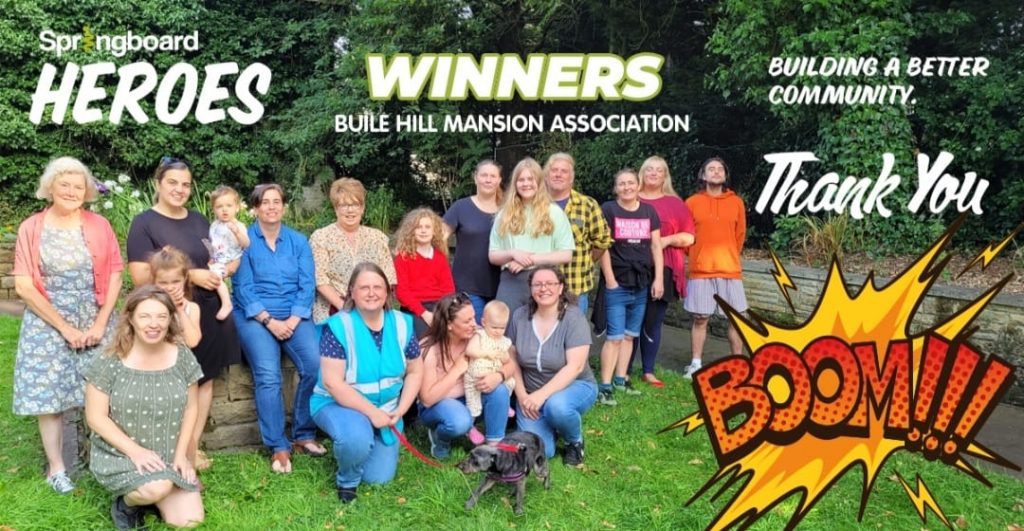
Volunteers at the Buile Hill Mansion hope a restored sensory garden will offer a safe place for LGBTQ+ members, women, children and everyone in between.
The sensory garden has plants that can be smelled, touched, heard and viewed, offering a unique sensory voyage for the first time in over 20 years.
Peter Simms is the lead horticulturalist and hopes it will be a crucial aspect in bringing together the local community.
He said: “When the mansion closed as a museum, this area was closed as well. And obviously it became overgrown, ignored, derelict. And slowly the mansion association is bringing it back.
“We’re all voluntary, and it’s about bringing an important space back to Salford, so people have access to it.
“I would hope that it would offer everyone in Salford an opportunity to find community. We are a diverse group. This is one of the few spaces in Salford which is actually designated a safe space. So it’s LGBT safe. It’s woman safe, it’s children safe. It’s also a disabled space. Everybody is welcome.”
The garden itself has been undergoing a huge amount of work due to the derelict state it had been left in:
“There were large amounts of brambles, nettles, weeds, the beds were choked, you can see we’ve got pieces of masonry missing, we’ve got the floors to do, we’ve got the lawns to redo,” he said.
“It’s really, I would say, about a third of the way there.” Mr Simms said.

The family of Ellen Malenson, the mayor who originally opened the garden, have been pivotal for helping crowdfund the restoration. Roses called Ellen will be planted in the garden to remember her.
Jelena Wilson another volunteer working on the project explained how the renovation is positive for those with memories of the garden before it was closed.
She said: “We used to play in it. It was just our little like Secret Garden I suppose, but then it just became derelict, and then obviously they had to remove that because it became dangerous, so the fact that we’re able to do this and get it reopened so the public can use it again to us it’s fab.
“We used to spend half our childhood in there, so it’s just been really like fulfilling to see it come into fruition.”
Whilst some have helped for the nostalgia factor, some volunteers like Lyndsey Curran-Dunez help with the project for the opportunity to build on their passion for gardening.
“It’s the gardening because I absolutely love gardening,” said Ms Curran-Dunez.
“So that’s one of my things I like to do. I have an allotment and I do gardening as jobs as well. It’s just kind of like an extension of that I suppose.
“You’ve got really like gardening to just want to throw yourself into it I think. I actually like everything about all the plants as well.
“You do have to look after them [the plants] and nurture them.”
For some, this project has offered them the chance to become a part of their community and improve their mental wellbeing. One volunteer said:
“I’m a single parent and to me it just makes me feel part of my community.
“I just want to be part of a community and help improve the space and make friends.
“It’s really improved my mental health because I’ve got anxiety and depression, so it’s really helped that.”

The project has seen between 20-25 people get involved every weekend, with about 50 volunteers in total being involved.
Mr Simms explained the plans for the future for the garden with all the work that has been done by the group.
“The aim is for this to be self-supporting. The idea that all of the plants in the sensory beds are touchable, so they’re all things that we can grow and always have a supply of in the background to replace and they’re not expensive.
He was also very complimentary of the volunteers who have helped make this possible, stating the fact they have “very, very clever people here who are good gardeners” has helped making it self-supporting.
The work done by the group has also been recognised, with the project winning an award from Springboard Heroes for services to the local community.
You can help support the cause by visiting the group’s Facebook page.














Recent Comments